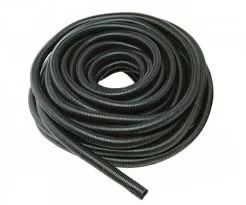milling machine bellows
Understanding Milling Machine Bellows Protection for Precision
Milling machines are vital tools in manufacturing and machining industries, renowned for their precision and versatility. However, their intricate components are susceptible to contamination and wear due to chips, dust, and other environmental factors. This is where milling machine bellows come into play—acting as protective covers that ensure the machinery operates smoothly and efficiently.
Milling machine bellows, typically made from flexible materials such as rubber, fabric, or plastic, serve as barriers against debris and coolant. The design of bellows allows them to expand and contract, accommodating the machine's movement while maintaining a tight seal. This protective functionality is crucial, as exposure to contaminants can lead to premature wear of mechanical parts, adversely affecting the machine’s performance and longevity.
There are several key benefits to incorporating bellows into milling machines. Firstly, they significantly reduce maintenance requirements by keeping chips and coolant away from delicate components such as slideways, lead screws, and bearings. This protection helps maintain precision, which is essential for producing high-quality machined parts.
milling machine bellows

Secondly, bellows contribute to improved safety in the workplace. By preventing spills and debris from escaping the machine, they minimize the risk of slips and falls around the work area. Furthermore, they help contain hazardous materials, ensuring compliance with safety regulations and protecting workers.
The material selection for milling machine bellows is crucial. Different applications may call for specific properties, including resistance to heat, chemicals, and abrasion. For instance, in environments where coolant is used, bellows made from chemical-resistant materials are preferable. High-quality bellows also feature reinforced seams to withstand pressure and movement without tearing.
Customization options are available for milling machine bellows, as manufacturers can tailor them to the specific dimensions and requirements of a machine. This bespoke approach ensures a proper fit and maximum protection, enhancing the efficiency of the milling process.
In conclusion, milling machine bellows are essential components that protect machinery, enhance safety, and reduce maintenance needs. By investing in high-quality bellows tailored to their specific requirements, manufacturers can improve the longevity and precision of their milling operations, ultimately leading to better productivity and quality of output. Therefore, understanding their importance is crucial for anyone involved in machining and manufacturing industries.








